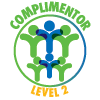The Quality Harmonization Journey: Best Practices and Lessons Learned from a Global Leader
Presented by: Joel O'Connor, Johnson & Johsnon & Morgan Palmer, ETQ
Area of Focus: QMS and Session Level: Basic
Effective Quality Harmonization provides a consistent approach to your organization’s entire quality environment. This enables everyone in the organization to have a single version of the truth and operate on a common platform to ensure process consistency and uniformly high quality. Harmonization is especially important in organizations with multiple work sites and a distributed work force. You’ll learn why harmonization is essential for fulfilling a high commitment to quality and why organizations that harmonize their quality process and systems on a single, broadly capable and flexible quality management system maintain business agility, compliance and true visibility across the organization. In this session, you’ll learn how to identify and manage common processes for harmonization. You’ll also learn how to get management buy in, other challenges you may encounter and how to address them. -The operational and business benefits of Quality Harmonization -The journey towards Quality Harmonization -Expert insights on how to approach Harmonization -The differences between Standardization and Harmonization -Best practices and lessons learned that apply to any industry.
I enjoyed this presentation showing one company's specific implementation including meaty details, not just theories and broad generalizations. Thank you! One point: it would help those of us in different industries for you to define some of the acronyms in your presentation.
I thoroughly enjoyed this presentation. At every organization I've worked in, there has at some point been discussion regarding parts of the QMS, or the QMS as a whole, that are being considered for replacement. I have seen well-designed (if simple) QMS systems fall apart as other systems were implemented next to it with only ad hoc integrations. I have also seen brand new QMS modules fail to succeed because the organization insisted upon fully customizing a basic software solution, but did not follow through with the resources (both budget and workers) required to do so.
It is very interesting to hear from someone who has seen at least some success in harmonizing and consolidating disparate systems, and to hear first hand that “out-of-box” solutions are often the most viable solutions. This matches my own first hand experience. It seems that we should adapt our processes to what is available in an out-of-box solution IF we know that we know that as an organization we don't have the stomach to support a full development effort to implement AND maintain complex customizations.





